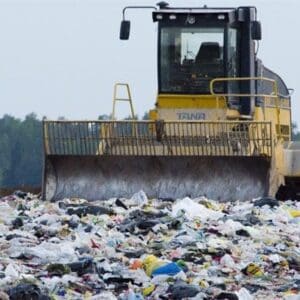Every household, to one degree or another, is acutely aware of the need to recycle. We should all know the difference between a black, blue and brown bin and we should all have noticed the frequency with which recycling is mentioned on TV, online, in schools and in our local communities.
To one extent or another, we must all do our bit to make sure that we are improving the disposal of waste in our environments.
Beyond the efforts of the individual household is the work that the local councils do to encourage recycling and support the correct disposal of waste. However, there is still too much waste going to landfill sites.
But why is this a bad thing?
What is a landfill?
Landfill sites are areas of land where both household and commercial rubbish that cannot be recycled is dumped and buried. Historically, there were a significant number of waste types that were not recyclable. There was also not the level of awareness or the recycling facilities that we have today.
Why is landfill NOT the ideal solution?
A high proportion of landfill sites consist of biodegradable waste that produces harmful gases such as CO2 and methane. Extensive research has also determined that landfill sites contribute to environmental pollution of both soil and water.
_____
Eco’s Top 5 Strategies
So what should our local councils do to reduce landfill waste? What initiatives should they be employing? Do you see evidence of initiatives in your area?
- Have a strategy and set objectives – develop a structured plan and stick to it, set realistic targets and monitor them
- Be proactive as well as reactive – look to prevent waste as well as dispose of it
- Educate and communicate – be the leading voice in the community for everything to do with waste. Create guides, have top tips, make the most of social media, keep everyone in the loop.
- Corporate Social Responsibility – build stronger relationships with businesses and charities
- Community Initiatives:
- Plastic bottles – the set up of collection points for disposal
- Clothing donations
- Pay-for-garden-waste schemes
- Frequency of bin collections – reduce the collections to every 3 weeks to encourage people to produce less waste
Many local councils will already be delivering some, if not all, of the suggestions above. They may be very good at communicating with residents or you may find it is just happening in the background.
No matter the individual efforts of councils more must always be done and individual households should always be striving to help make a difference.
It is an old phrase but still a relevant one that we should ALL remember – REDUCE, REUSE, RECYCLE!
